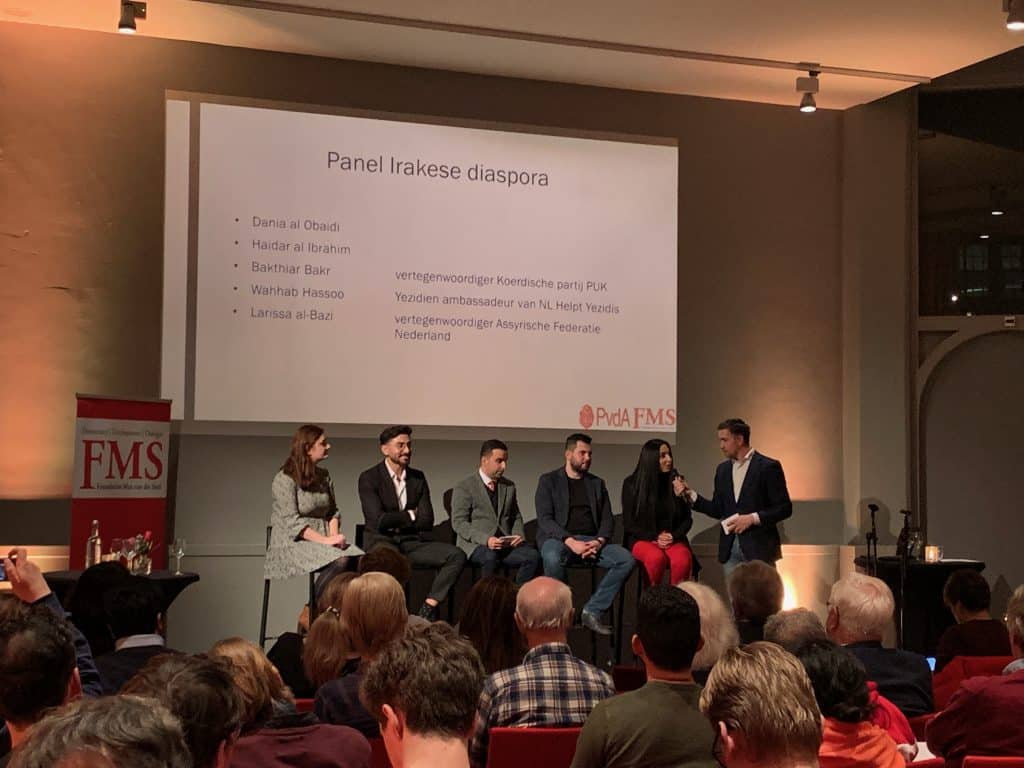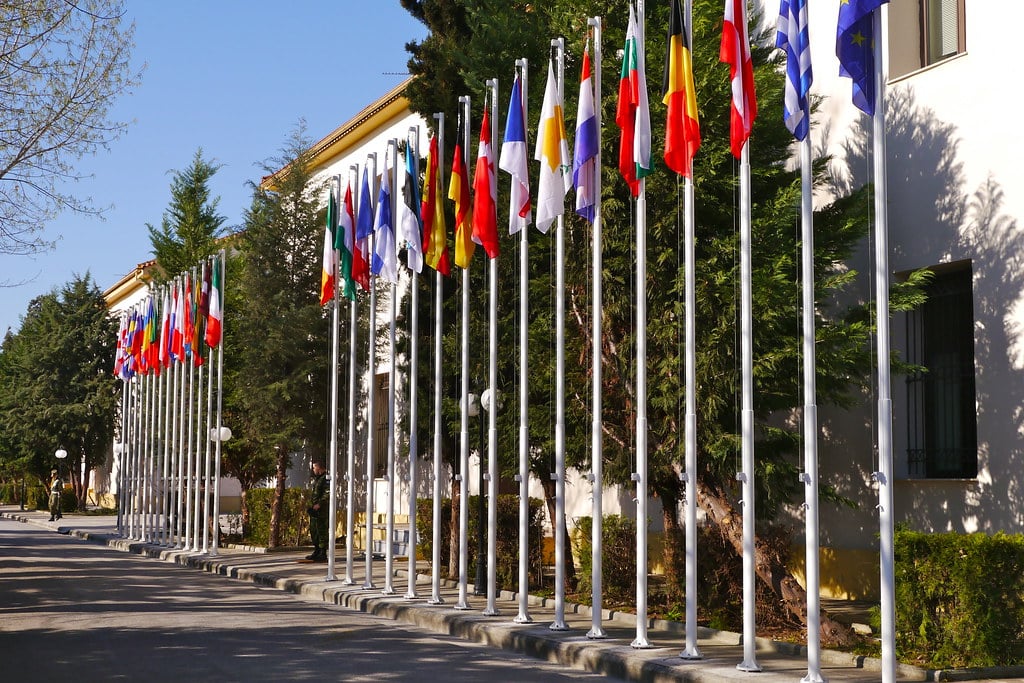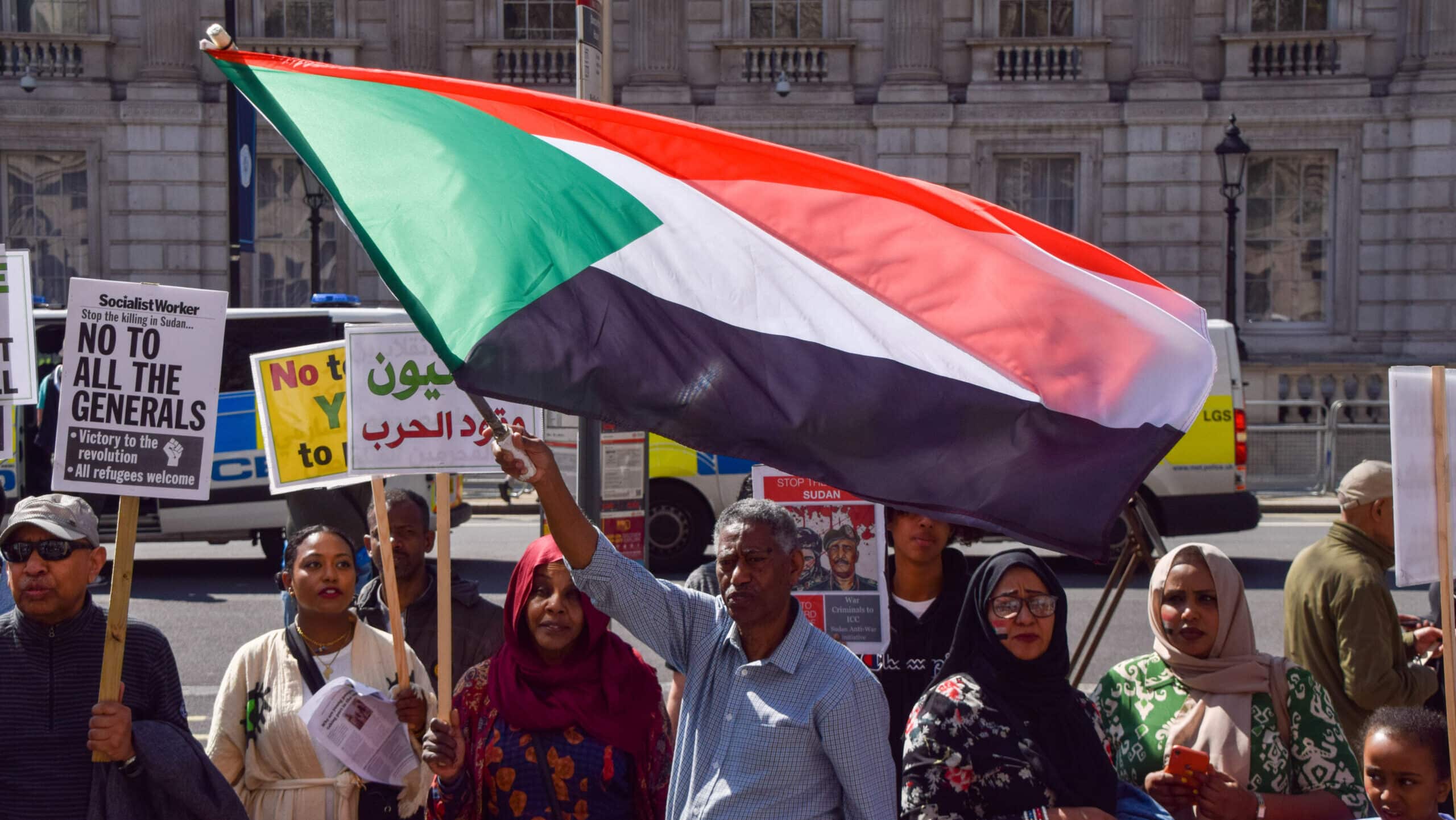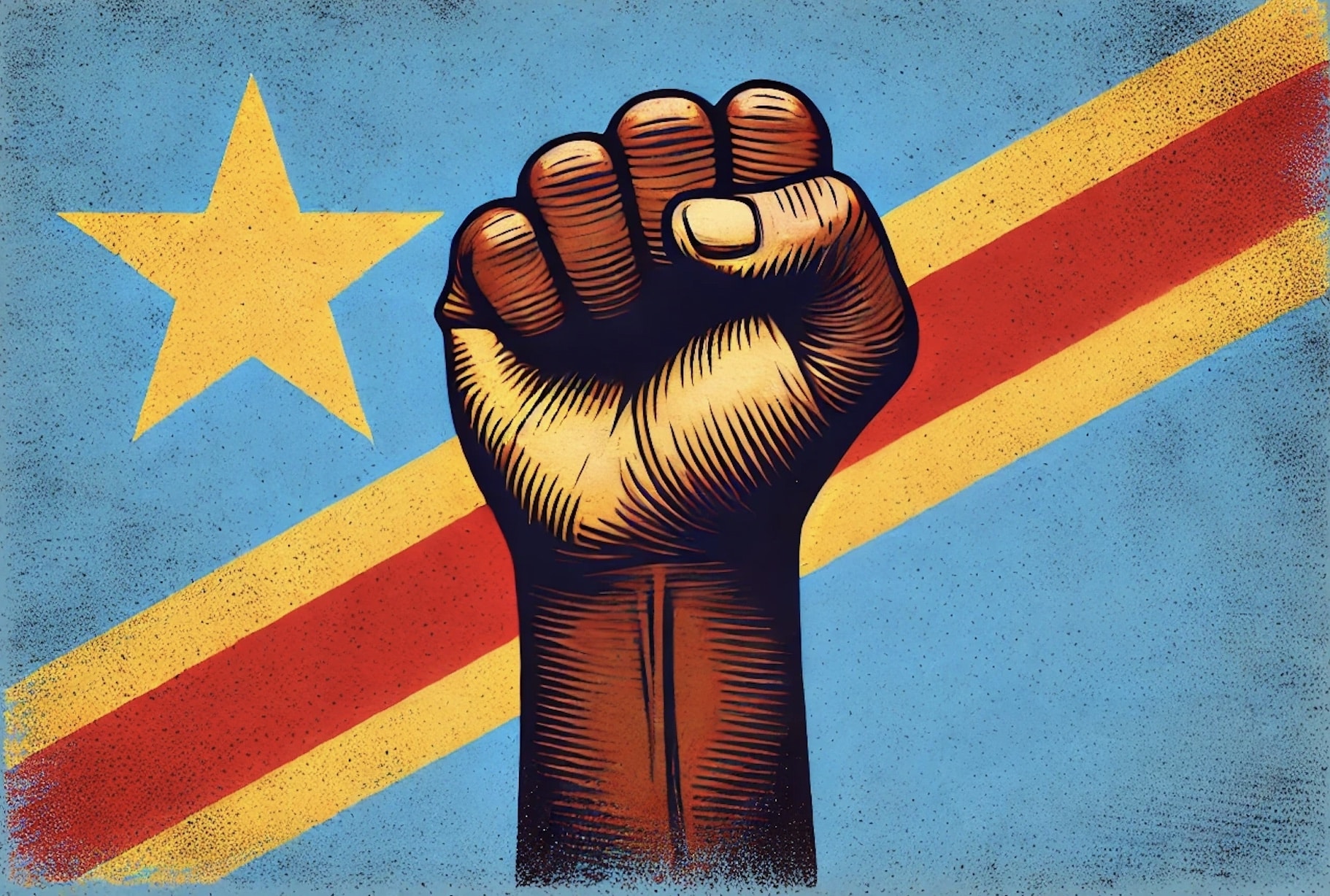Fierce protests have been raging in Iraq since October. On top of that, in early January, Iranian general Soleimani and Iraqi militia leader Muhandis were liquidated by the US in Baghdad. These events are highly likely to have major implications for Iraq and the region. Therefore, it was a good time to discuss them with politicians, experts and members of the Iraqi diaspora! In a well-filled room in the Muntgebouw Utrecht, the Political Café on Iraq took place on 23 January, led by moderator Kido Koenig. A very interesting evening with a nice musical interlude and an active audience looking at the situation and future of Iraq from different perspectives.
Iraq as a chessboard for superpowers?
Goos Hofstee, research fellow at the Clingendael Institute kicked off the evening with a brief introduction on the current situation. In it, the focus was on the liquidations of Soleimani and Muhandis on the one hand and the ongoing protests on the other. The liquidation of Soleimani and Iraqi militia leader Muhandis resulted in an Iraqi reaction in which parliament called on the government to send all foreign troops, including US troops, out of the country. Iraq belongs to the Iraqis and is tired of serving as a chessboard for superpowers. But "just because they are not pro-American does not mean they are pro-Iran" Hofstee argued.
That Iraq belongs to the Iraqis ties in with what Hofstee explains about the protests. People are not protesting in the name of a particular identity, but they are taking to the streets because of lack of food and jobs and against the corrupt government. These are basic needs that the government is failing to meet confirms panellist Dania al-Obaidi. She states, "What the protesters are asking for is not complicated, it is not much. Human rights are being violated publicly and little to no attention is being paid here."
Dutch and EU responses not sharp enough
Both the Netherlands and the European Union naturally reacted to the events in Iraq. Lilianne Ploumen, Member of Parliament (PvdA) and Kati Piri, MEP (PvdA), were present to give context to this. According to Ploumen, the Netherlands' response to the demonstrations was wise. "As the Netherlands, we must stand up for the protesters in Iraq. We should support their demands and speak out against corruption." However, Ploumen would have liked Minister Blok to have travelled to Iraq and spoken out sharply against corruption and in favour of the protesters' demands. According to Minister Blok, this would be too much political interference, but "if people stand up for very ordinary rights, then you as the Netherlands should be on their side" said Ploumen.
However, the MP is less pleased with the Dutch response to the liquidations. The Netherlands showed understanding for America's action, but what this understanding is based on is unclear, according to Ploumen. "The Dutch government's reaction to the recent US bombings was not sharp enough. There is too much following the Americans," Ploumen said. According to Bakthiar Bakr, representative of the Kurdish party PUK, the Netherlands can make its own choices by, among other things, exerting pressure by, for example, disengaging militias from parties the Netherlands cooperates with.
Kati Piri later gave context to the European response to the events in Iraq. Piri argues that the EU's response to human rights violations during the protests was not vocal enough. She indicates that the High Representative of the Union for Foreign Affairs and Security Policy should be called upon to ensure that those who violate human rights are actually punished. She further argues that the demand for external aid must come from within Iraq itself. Iraqis should single-handedly select the international players to play on their pitch. According to Piri, Iraq sees the EU as an independent player and thus has confidence in it. "Iraqis call on Europe to facilitate dialogue" Aldus Piri. Dialogue and giving advice is the EU's strength and this is how we can and should help Iraq.
What does the future of Iraq look like?
Five members of the Iraqi diaspora also interacted to discuss Iraq's future and what it needs to get itself out of this trapped position. According to panellist Larissa Al-Bazi, representing Assyrian Federation Netherlands, the political system is corrupt and needs to be turned upside down in its entirety. Bakhtiar Bakr agrees adding that "shifting puppets will not help, there needs to be a different game".
Thus, big steps need to be taken to achieve such a different "game". According to Wahhab Hassoo, ambassador of NL Helps Yezidis, institutions must be set up to ensure a system of "check and balances". In addition, fair elections should be organised and freedom of religion should be established. Haidar al Ibrahim adds that control during elections is crucial and also underlines the importance of new faces in politics. According to Al-Bazi, minority groups should also be listened to more as, out of 329 seats in parliament, only five are now reserved for the Christian minority, for example. Thus, they do not feel represented and trust in politics is weak.
Creating a 'different game' is only possible if citizens regain trust in politics. Today, few citizens go out to vote because of the lack of trust in the political system and the promised changes. According to Bakr, citizenship and democracy must first be promoted in Iraq for that trust to return. Iraq now supposedly has democracy, but this democracy is not working. According to Bakr and other panellists, it takes time for a democracy to work. "Democracy is not a product you can just import," said panellist Larissa Al-Bazi. But, the fact that young people are taking to the streets shows that they are ready for change!





